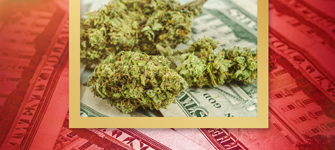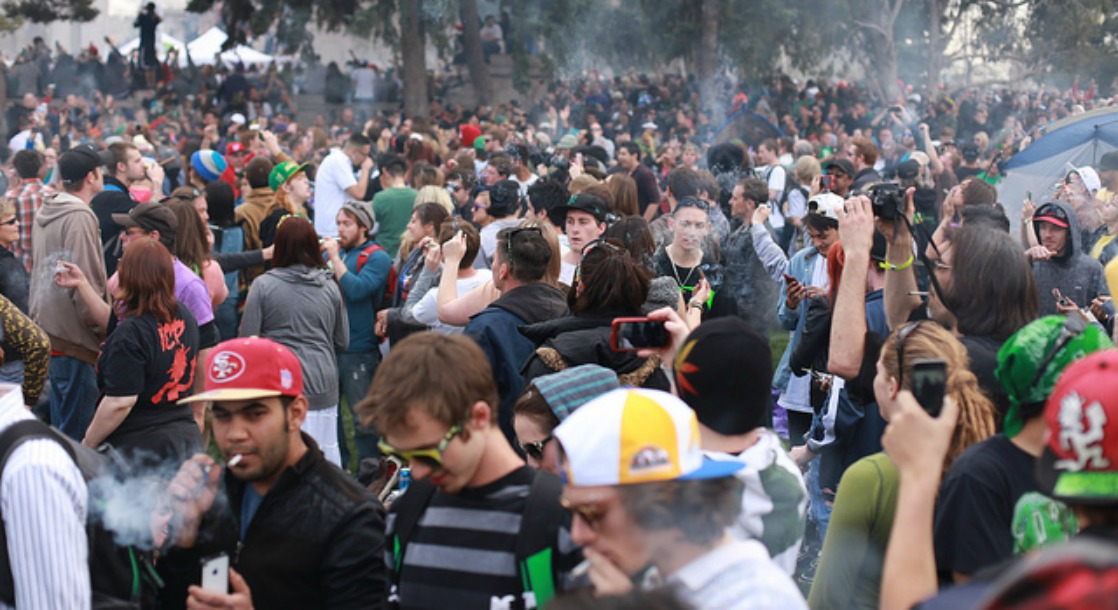
Image: Dank Depot
Ever since legalization started taking hold in the States, cannabis enthusiasts have been perplexed with pricing. When Colorado first legalized the recreational use of cannabis, prices were outrageously high. An eighth in Colorado? Upwards of $65!
We knew that there would be taxes on legal marijuana and rightfully so, but we didn’t know prices would be so dramatically different. This promoted the idea that legal cannabis would change cannabis prices for the worse, but it’s been over a year since dispensaries became legal in certain states. As such, it’s time to further examine how and why legalization might be changing the price of marijuana.
The legal marijuana industry is, first and foremost, a collection of businesses. Their mandate isn’t just to supply great product, but also to make money doing so. If enough people were willing to pay $65 dollars for an eighth, why wouldn't businesses price it at this point? This original steep pricing also makes sense in that it limited the amount of business dispensaries received at one time. They could supply just as much as they sold—no more, no less. As a result, they didn't risk completely selling out of product and having their customers shop elsewhere. Limiting clientele at the launch of a business is key to growing sustainably as a business—there's nothing worse than losing business to a competitor because of a lack of product.
Legalization has not only created these storefronts and businesses, but also an entire supply subindustry. Growing cannabis for stores is now a thriving business where professionals pride themselves on knowing everything about the strain they're growing. It's all about quality control, being able to supply a great strain and having the next batch be identical. This, of course, comes at a cost. Researching growing patterns, developing a specialized farming industry and delivering quality product doesn't come cheap and that's reflected in legal cannabis prices, too.
Taxation is the last thing that's been changing the cost of cannabis. Having tax on marijuana allows the industry to be a core part of the US economy. By participating in this, the marijuana industry has a lot to gain, namely when it comes to the areas of destigmatization and acceptance. Money also talks, and as long as the government is able to generate revenue from marijuana sales, the longevity of the industry itself is supported.
While taxes aren’t excessive for storeowners, dispensaries do have a lot of overhead to cover. They have to train staff, pay for utilities, products and lease payments and cover many other costs. Pricing has to reflect all of these things while still generating a profit, which explains why prices might be steeper than if one individual was selling the product on their own. This is just how businesses work, and it's a tradeoff that you make for quality control and customer experience.
After a year of supply and demand management, prices are finally decreasing and levelling out. Now, we may see a reduction in prices as more competitors enter the market and established dispensaries shrink their margins. Business is still booming and with prices that are comparable, but not quite as low as on the street, the black market may finally be getting squeezed out.
Legalization of cannabis has created a legitimate industry where businesses have to consider things like taxation, overhead costs and the cost of higher quality and more strictly regulated products. You know what you’re buying, you know what your high will be like and you know you can trust the product. Pricing has changed quite drastically because of this and will continue to fluctuate for years to come. With the rise of a more regulated, legal industry, though, you get far more for your dollar—but likely won't have to pay $65 for an eighth for very long.











